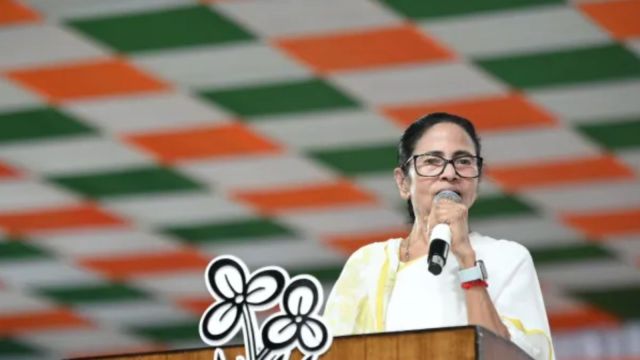
By Adil Hossain
The TMC frames OBC reservation as a token intervention to help the Muslim community rather than as a social justice ideal for backward castes as envisaged in the Mandal Commission report. On the other hand, the BJP has consistently highlighted the TMC’s OBC politics as appeasement of Muslims in the state. That is why the former promises that if it comes to power, it will create more space for Hindu backward castes by removing Muslim groups from the ambit of OBC reservations.
Interestingly, the local BJP unit has never demanded an increase in the reservation quota from the existing 17 per cent to 27 per cent, as in other BJP-ruled states. It even celebrated when OBC reservation came down to a mere 7 per cent due to a Calcutta High Court order in 2024 that removed 77 Muslim castes from the state OBC list. In that sense, both parties seem to have an understanding not to hurt their upper-caste base in favour of disadvantaged caste groups.
Soon after the Special Intensive Revision (SIR) of electoral rolls was announced in early November for 12 states and Union Territories, including West Bengal, the state BJP unit submitted a memorandum to the Election Commission (EC) seeking the rejection of OBC certificates issued between 2011 and 2024 by the Mamata Banerjee government. According to the EC directive, OBC certificates are among the 11 documents to be considered when updating the voters’ list. As expected, the local BJP unit alleged, without much evidence, that “a vast number of OBC-A certificates have been issued to members of the Muslim community, many of whom are alleged to be illegal infiltrators.”
Meanwhile, Muslim groups are organising among themselves, as many feel that the TMC government has cheated them with its new OBC policy adopted in June this year. After the Calcutta High Court order last year, the state government challenged it in the Supreme Court and announced a fresh caste-based benchmark survey through the Backward Classes Welfare Department. With a flawed methodology — lacking a comprehensive survey and extensive ethnographic studies of marginalised caste groups — the state government rushed to declaring a new OBC list and sub-categorisation (OBC-A as “most backward” and OBC-B as “backward”), which has further alienated Muslim groups.
Today, marginalised Muslim caste groups like the Shershahbadia are petitioning the state and hitting the streets to protest the government’s decision to shift them from OBC-A to OBC-B and to include large Hindu caste groups such as Goala, Gope, and Yadav in OBC-A (from OBC-B), thereby rendering the policy ineffective for Muslims. They cite evidence that in almost all admission lists published by different Bengal universities after the June order, students from these backward Muslim castes are absent from the OBC category.
As Muslims have no viable political alternative in this political climate, the TMC government has little incentive to revise its OBC policy before the 2026 state assembly elections. However, the same policy adopted in 2012 created a new middle class among backward Muslim groups, who are now much better organised and articulate in expressing their political discontent. It is up to the weakened Left Front and Congress to determine how they might channel this discontent to regain their old voters from the community in Malda, Murshidabad, and other Muslim-dominated regions.
The fear of disenfranchisement through bureaucratic and documentary identity-building processes, along with the BJP’s rhetoric on “illegal Muslim Bangladeshis and Rohingyas” versus “legal Hindu refugees”, will further polarise state politics and consolidate Muslim backing for the TMC. If the 2021 Bengal assembly election could be termed the “NRC election”, it can be safely predicted that the vote to elect a new government in 2026 will be the “SIR election” in the state.
The writer teaches at Azim Premji University